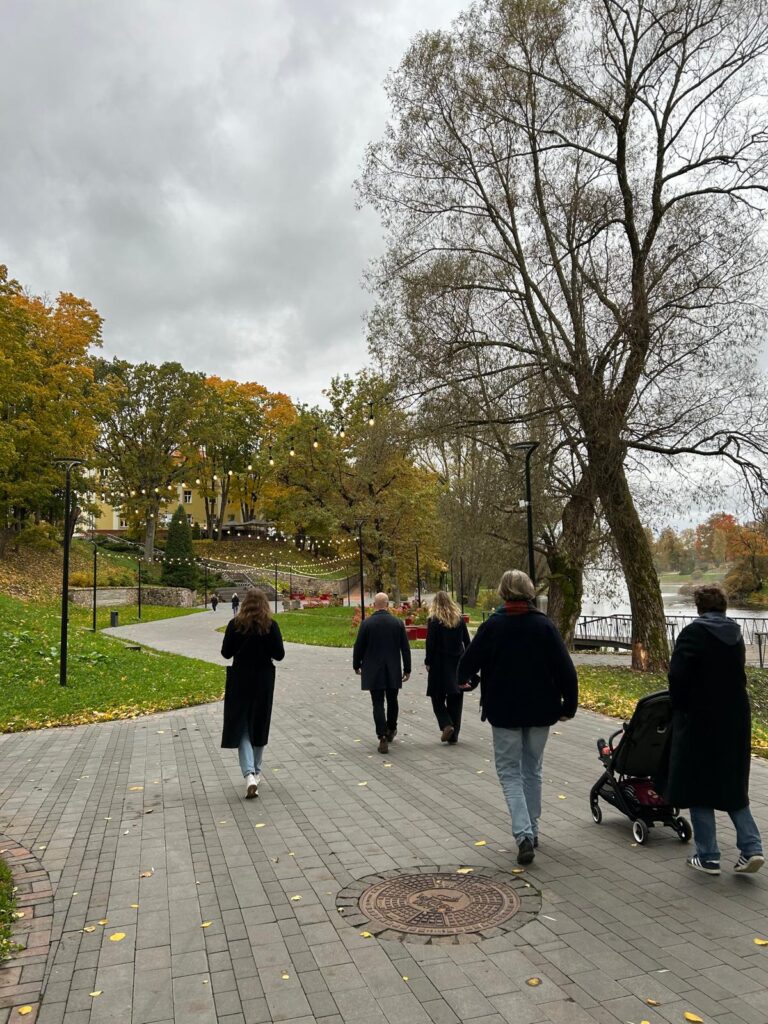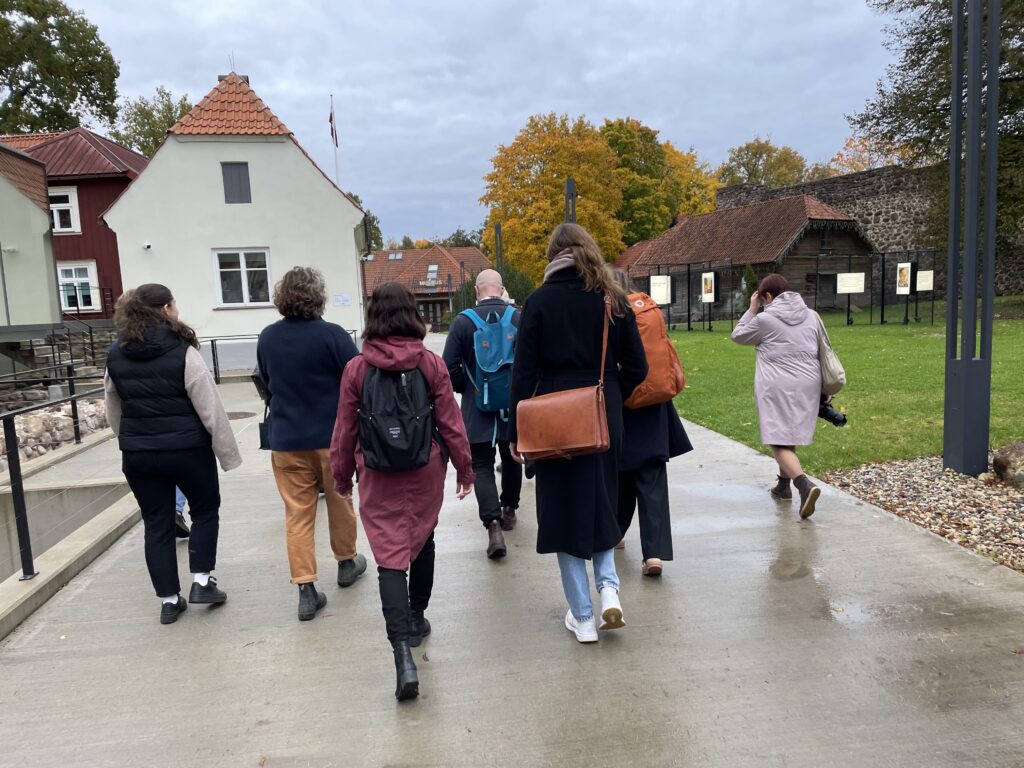The sun greets us when getting off the plane from Stockholm to Riga on this beautiful October morning in 2024. We are not the usual picture of researchers on a fieldtrip, equipped with backpacks, voice recorders, pen and paper. Instead, we are carrying a tired toddler, push a stroller and have lost the first pair of socks. We wonder briefly if this trip with a toddler might have been an overly ambitious project.
We meet the rest of our research group that comes from Finland and pick up the rental car that we are going to drive to Valmiera, the first stop of our trip. When meeting the Finnish contingent of our group, some of my worries dissipate. It is great to meet in person and they understand the difficult negotiation between parenthood and academic demands.

We get the car and settle in for our road trip to Valmiera. On the way we eat fantastic local food in an unassuming roadside restaurant, and I start being very excited for this trip focussing on food and research on food. Once we get to Valmiera, we drop the luggage at the hotel, eat a snack and are on our way to the Valmiera REKO pick-up, way ahead of time. Or that is what we thought.
Up to this point, we have studied REKO rings in rural and urban areas in Finland and Sweden and have become used to a rather strict adherence to the timeslot that is allowed for the pick-ups by the respective municipalities. Generally, the pick-up is 30 minutes and apart from some overeager consumers – that would be us – no one comes too early.

Valmiera is very different. The pick-up starts about an hour ahead of time and ends about an hour after the allocated time slot. The atmosphere is like a market or a big family gathering. The producers all seem to know each other, they chat with the consumers about the products, greet their regulars, and seem to have a good time. The interactions and the ambience remind me of how I grew up in Eastern Germany. A slight sense of anarchy, and a sense of togetherness. A sense of “we can do this”. My toddler, who is really more of a baby still, loses their very tenuous patience about half-way through the observation and midway through one of my interviews with a producer. The very kind producer offers me to sit in her car for feeding the baby, but everything around is just too interesting for the youngest researcher, and so we stand, continue chatting and I feed the baby. Juggling parenthood and work acquires a whole new dimension for me in that moment.
The Valmiera REKO ring has a Facebook group where the consumers are supposed to comment with their product order. And though many people do pre-order, many more just show up at the pick-up and buy, the process resembling a farmers’ market. The produce is displayed on tables, often with a tablecloth and neat little shelves. It is a stark contrast to the paper bag handover at the Swedish pick-ups.

The baby has been an excellent conversation starter and charmer of study participants, in both Sweden and Latvia. The difference in Latvia has been a more familial atmosphere, it seems a baby is everyone’s treasure and less of an individual choice. Every woman we walked past, smiled at the baby, some cooed, some chatted with us. In that regard, doing this trip with a child has been both, exhausting for sheer extra responsibility and weight to carry but also rewarding as it has allowed me to be a parent and a researcher. Of course, none of this would be possible without a spouse that values my career and comes along for the child entertainment. And a research group that happily takes the baby for a quick stroll around the restaurant so the parents can inhale the rest of their excellent food, a research group that is only amused when the baby falls asleep during the research meeting, lulled by the soothing voices and the riveting publication plans.

Valmiera has been like a warm hug in the cold autumn air, and I am very grateful that we were allowed to come and experience this different interpretation of the concept of REKO.
Sunny greetings from Steffi and the researcher baby